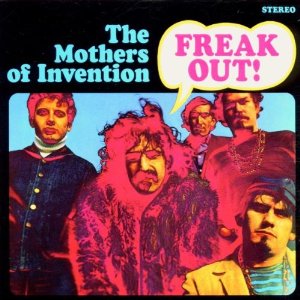 Today at HuffingtonPost.com, producer Don Was busts iTunes for not including liner notes or production information. In it, he talks about how life-affecting the liner notes for Frank Zappa’s Freak Out! were, and how they opened up a world to him as Zappa identified people and places that were somehow a part of the world that shaped the album. “If Zappa released that same music today,” Was wrote:
Today at HuffingtonPost.com, producer Don Was busts iTunes for not including liner notes or production information. In it, he talks about how life-affecting the liner notes for Frank Zappa’s Freak Out! were, and how they opened up a world to him as Zappa identified people and places that were somehow a part of the world that shaped the album. “If Zappa released that same music today,” Was wrote:
we’d browse the 30-second samples on the iTunes store without the benefit of reading those mind-blowing liner notes. There’d be no context or depth to the whole experience. It’s no wonder that kids don’t wanna pay for music anymore — downloading a file of zeroes and ones for 99 cents has the same cultural allure as ordering a Ronco Veg-O-Matic from an 800 number.
As someone who has similarly pored over liner notes and discovered musicians and writers by reading liner and jacket notes, I identify 100 percent with Was. But when I taught at a community college and asked my students to write about their favorite songs, they struggled. “I like the one that goes …,” they’d say, then sing (or mumble) the part of the song they liked. For me as an obsessive music consumer, not knowing the name of the song or who did it was incomprehensible, but not knowing that information didn’t change how much they liked hearing their songs in the club or when they came up on the radio. And they thought I was obsessive for knowing that information and caring about it.
The problem with Was’ argument is that it assumes that there’s one way to consume music. It’s a common assumption, that the album is the greater artistic statement than the song, and of course consumers would want the album because it’s the greater thing. But at the time when many of us were buying albums, a lot of people were only buying singles because that’s all they wanted. They weren’t looking for life-affirming art objects; they wanted to hear the songs they liked to dance and sing along to. They weren’t collectors and didn’t even need to hear every single by an artist, just the ones they liked.
The state the music business is in is largely a product of the album-first way of thinking. When the labels phased out singles entirely, they forced people who like music to pay for albums when all they wanted were the songs they liked (albums are more profitable for record companies) and when fans were pissed off at paying for songs they didn’t want and had the thing they wanted taken away, they were open to less legitimate ways of acquiring music such as Napster.
If the people who don’t need to know the artists and titles read music criticism, I wonder if they’d detect condescension in the writings of those who fear the death of the album (and its accompanying parts). If iTunes were the only way to consume music, I’d be more concerned, but there’s a good chance that those who’re getting their music through iTunes would never have read Freak Out!‘s liner notes if they were available, and they’d have been okay with that. The assumptions about the pre-eminence of the album really need to be reexamined because they make those who make them seem as dated as references to Freak Out! do (and probably like a headline referencing the Buzzcocks does), and they ignore the realities about how people have consumed music since the dawn of rock ‘n’ roll.




